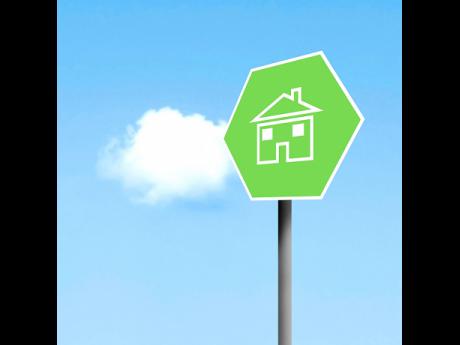Oran Hall | Your own home by age 26
QUESTION: I would love to acquire my own home through the NHT by age 26. Can you assist me?
- G. Gray
FINANCIAL ADVISER: I get questions similar to yours quite often. You did not state your age, but it is clear that you want to own your home soon. I am not able to assist you other than by telling you what the National Housing Trust (NHT) offers and what the overall requirements are for acquiring a home.
To get a benefit from the NHT, you must be a contributor and be able to repay the money it lends you. You should also be able to pay the costs associated with buying a home and have funds to pay the deposit and closing costs.
To qualify for an NHT benefit, you should be currently contributing to the NHT; have made at least 52 weekly contributions, 13 in the last 26 weeks just before the date of application; earn an income that allows you to repay the loan; and have paid with interest any outstanding contributions due in the past three years.
In the case of a house being purchased on the open market, the deposit tends to be what the seller asks for, but that does not mean that there is no room for negotiation. It may range from 10 per cent to 20 per cent of the purchase price.
Closing costs are the range of expenses incurred in settling the transaction, which culminates in the property being registered in the name of the buyer. Some of these expenses are shared by the buyer and the seller, and they are generally calculated as a percentage of the market value/selling price of the property.
Closing costs for real estate transactions include the registration fee (0.5 per cent), stamp duty of 4 per cent of purchase price, shared equally by the buyer and seller; transfer tax, paid only by the seller (4 per cent); attorney's fees (2 per cent to 4 per cent); and additional attorney's fee for preparing the sales agreement and other documents. With respect to the NHT scheme units, though, successful applicants pay just $3,500.
Although the NHT grants a qualified applicant up to $5.50 million to buy a house on the open market and to build on a contributor's own land, there is no guarantee that a contributor will qualify for that amount, considering that the sum it will lend depends on the applicant's income as it is what ultimately determines ability to pay. Nevertheless, two persons may apply jointly and qualify for $11 million.
Apart from the Build on Own Land and Open Market loans, another option available is buying an NHT scheme unit. The NHT advertises these units in the print media and on its website when they are available.
The NHT allocates units in its schemes using a selection process based on the following criteria: parish of residence or employment and number of points. Applicants must live and/or work in the parish where the scheme is located, and points are derived from weekly contributions and current income. In the case of joint applicants, only the points of the primary applicant are used for selection, so it is important that the primary applicant has more points than the co-applicant.
NO DEPOSIT NEEDED
Qualified applicants who are selected for NHT units are not required to make a deposit but must be able to afford the unit. An applicant who qualifies for less than the price of the house is required to fund the difference.
One advantage of borrowing at a young age is that it allows for a longer time to repay the loan and thus, lower monthly repayments. Applicants have up to age 70 to repay the loan, but the maximum term allowed is 40 years, so should you get a benefit at 26, you would have up to age 66 to complete payment.
Without the benefit of knowing what your financial situation is, I am venturing to say that you have to do all you can to have the funds required to make your dream a reality. The NHT route is the cheapest, but it still requires money. If you have to increase your income and tighten your spending, do what you must.
- Oran A. Hall, principal author of 'The Handbook of Personal Financial Planning', offers personal financial planning advice and counsel.


